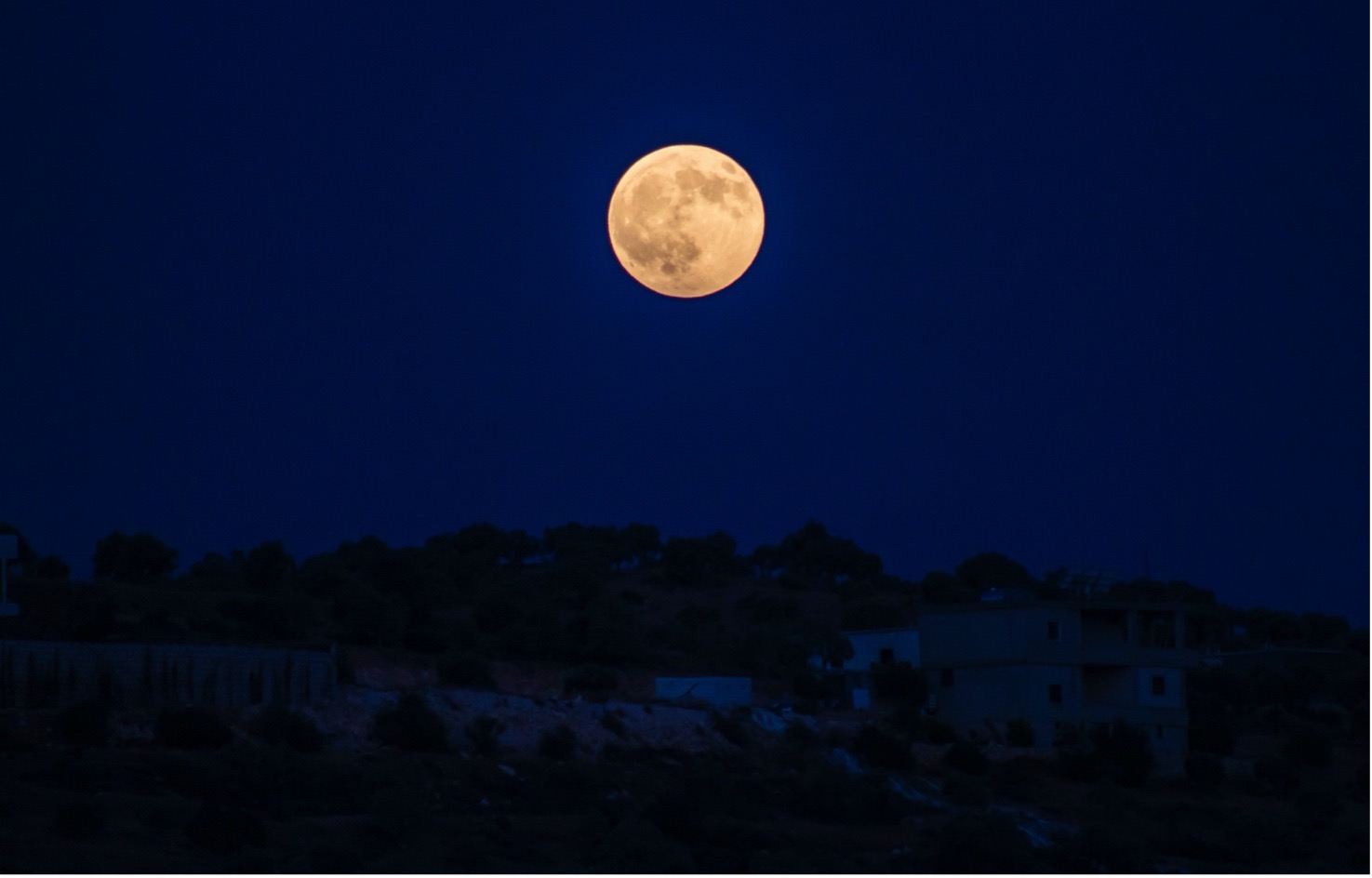
Concentrating on the Finger Pointing at the Moon: Concepts as Indicators and Factors
This is the third and final blogpost in a series from Giulia, one of our first-ever WiRe fellows whose research focuses, among other things, on the contemporary history of Catholicism in Europe. We are thrilled to have her back as a guest on the blog, this time introducing by way of creative writing her newest research project on the conceptual history of sexual abuse within the Catholic Church in the 19th and early 20th centuries. Giulia would like to thank the WWU for funding the preparatory stages of the project through the Post-doc Program and Erasmus+, and Professor Dr. Olaf Blaschke, apl. Professor Dr. Klaus Große Kracht, and Professor Dr. Dr. h.c. Hubert Wolf for their invaluable input and support. The story, all names, and characters portrayed in this blogpost are fictitious.
The story of a research project is always the story of a journey. A journey made of planning, researching, drafting, revising, updating… but also sharing, listening, and debating; a journey through readings and encounters, from the library desk to the coffee table, from the bar counter to the lecture podium, and of course also from blogs and forums to specialized journals. The story of my project unfolded as I traveled from my home laptop to a restaurant’s dining table.

A burgundy tablecloth, light-blue-glazed dinner plates and crystal glasses glowing in the candlelight, and three friends (me, Aurora, and Elena) enjoying a Roman evening in all its glory: this was the delightful setting we had just reached after a city hike through Rome’s ancient alleys. The brisk walk had given me the opportunity to reveal one more breakthrough in the development of my project – the focus on conceptual history when dealing with sexual abuse in the Catholic Church – but not enough time to explain its entanglements. We discussed how concepts are essentially ambiguous and controversial, so that to study conceptual history means to uncover a struggle over multiple possible meanings. But Elena was still perplexed as to whether all this was just a dry academic speculation having little or nothing to do with the concrete life of people who lived in the past. And who could blame her? ‘Concepts’ and ‘conceptual’ sound so remote and abstract, and at that point in time, being impatient to nourish ourselves with something other than alcohol and food for thought, it was only natural to have a spontaneous concern for concreteness.
The first thing to do then was to seize our table and order some real food. Almost as soon as we sat down, still out of breath from the rush to get there, a very young and lively waiter came over with water and menus. Elena already knew that she wanted to get the restaurant’s renowned lemon-sage chicken cutlets, and it took me less than 2 minutes to set my mind on the swordfish steak with cherry tomatoes and capers. Aurora instead was methodically perusing all the items on the list, until something among the vegetarian entrees caught her attention: eggplant parmigiana served alongside chickpea meatballs in roasted red pepper sauce. “I almost forgot!” she exclaimed, finally closing the menu and signaling to the waiter that we were ready to order. Then, once our choices made their way to the kitchen, she clarified:
Aurora: “I was here a few weeks ago and someone ordered the eggplant parmigiana and made me taste it. It was one of the best dishes I have ever had!”
Elena: “I had it too once and found it a little too rich. I think they should serve it with something lighter like a salad.”
Aurora: “Whatever… It is perfect as it is. Really divine!”
Elena: “I’m not saying it wasn’t delicious… It was actually excellent, but to me it would still need a more delicate touch to become ‘divine’ as you say.”
Me: “It’s funny that you should say that… I was looking for a way to show you how concepts affect concrete life and you just gave me a great hook.”
Aurora: “Really?!? How?”
Elena: “Were we struggling about the meaning of an eggplant parmigiana?”
Me: “Sort of… You see, in your brief discussion, Aurora presented a past experience describing the dish as it is and you expressed a future expectation as to how the dish should be. The same happens with concepts, but all at once. A concept contains at the same time the description of a reality as it is, and the expectation as to how it should be in the future.”
Aurora: “That’s not so clear to me… And at any rate how does that show that concepts influence real life?”
Me: “I’ll give you an example. Let’s take the question of divine vs human out of the food realm and imagine that the discussion does not simply involve two people but entire social groups or generations. Can you think of any historical situation?”
Elena: “Well, since we are in Rome, I can think about the Roman emperors who were considered gods. Or also Jesus… Are those good examples?”
Me: “Yes! In those examples, both the description of what a divine being looks like and what it should look like did not exclude living a human life and even dying. Now think about how many people’s lives have been influenced because the Roman emperors as well as Jesus were considered gods.”
Aurora: “That’s true… Many historical events and social developments took a certain direction because those figures were seen as not only human but also ‘divine’. And basically you are saying that all this would have been impossible without a specific concept of divine?”
Me: “Exactly!”
Elena: “But wait, what about the opposite of considering someone superhuman? What about what happened with colonization, slavery, or even the holocaust? Are concepts involved in those cases too?”
Me: “Definitely! Just like the concepts of ‘divine’ or ‘god’, also the concept of ‘human being’ and its interplay with other factors made a massive difference in the daily lives of a great deal of people. The word ‘human’ remained unchanged for many, many centuries, always indicating something distinguished from animals, plants, inanimate objects, gods, aliens, etc. But the concept of human, the description of what a human being is and the expectation as to what it should be, has been very variable and contested.”[1]
Aurora: “So practically the struggle for meaning has an impact on real life because concepts can be used to move people and events in this or that direction. And I suppose that’s true whether it’s done purposefully or not. That sounds terrible…”
Me: “It does…. But that’s also one more reason why studying conceptual history is so important. Concepts are not just descriptive indicators but also active factors within history. They reflect the past but also somehow shape the future[2], especially concepts with political and social significance, like nation, democracy, autonomy, etc.”
Elena: “Wow! So your project can really make the difference: one could say that a study on conceptual history, by giving us a better understanding of what things like ‘a human being’ or ‘a democratic state’ really are, can even save lives!”
Me: “Hmm… somehow, yes, but I think it is important to…”
“Look over there,” interrupted Aurora, pointing at the corner of the restaurant’s entrance with her chin. The waiter had just come out of the indoor area and was approaching our table with our orders. But we were further distracted as we heard the sound of many chairs scraping the ground. Over 15 people gathered around a table not far from us stood up together at once as another waiter brought them a huge birthday cake. It was a big family with lots of kids chattering and laughing, and they were celebrating their grandfather’s 90th birthday. In the meantime, our food too had been delivered, but we all instinctively hanged on and listened to a very heartfelt interpretation of the Happy Birthday song. The whole scene, including the sprightly gramps, was very moving, and one could tell at a glance that everyone was having a wonderful time.
To me it was like reliving the Sunday Family Lunches at my grandpa’s house. He was the most jovial and peaceful person in the world, with constantly messy hair and beard which granted him a charismatic, mad scientist look. Besides, he was a sensational storyteller. He would tell us stories about himself, the places he visited, and the many, many people he met throughout his life. And no matter what the story’s theme was, we knew it would always end with a punch line or a motto, sometimes making us burst into laughter and other times making us reflect upon the most serious aspects of life.
One of his all-time favorites was the image of a finger pointing at the moon, the finger being the teaching or the teacher and the moon being the actual truth they refer to. In the original version of the maxim, the emphasis was always on the moon, the truth itself which one would miss by focusing too much on all those things that merely indicate a way to reach it. As Bruce Lee used to preach: “Don’t concentrate on the finger, or you will miss all that heavenly glory.”[3] So one should never mistake a pointer for the reality it points at. But is that a good reason to not concentrate on the former or even to neglect it? My grandpa never thought so, and now that I was confronted with a quite complex issue (how can my project save lives?!) I could use his pearl of wisdom to illustrate my stance.

A magnificent full moon enlightening the darkness of the night and more / Photo: Samer Daboul, pexels.com
So, right after the song came to an end, I picked up the conversation where I left it, but with greater motivation and flair.
Me: “Yes, an endpoint and somehow unintended result of a study on conceptual history may also be a better understanding of what ‘a human being’ or ‘a democratic state’ are, but I think it is important to not overlook an essential distinction. Do you know that famous adage saying that a finger pointing at the moon is not the moon?”
Elena: “Yes. And one should not overlook the moon.”
Me: “Well, not when dealing with conceptual history. In the grand scheme of things what ‘human’ is per se (the moon) is more important than what ‘human’ has been considered to be in different historical periods and within different groups (the finger). But conceptual history only deals with the second aspect, the subjective, historical part, that is what allows us to socially understand and discuss the object itself.”[4]
Elena: “So it’s true that the moon is technically more important, but you still want to focus on the finger?”
Me: “Indeed! Because in the case of concepts, concentrating on the indicator also means to concentrate on a crucial factor: a finger that may point at a specific spot of the moon making it more outstanding than the rest, or on the contrary one that may cover a part of the moon or throw a shadow on it.”
Aurora: “And what about the issue of saving lives? I guess that’s out of the question if you admittedly focus on what is less important…”
Me: “Not at all! Even when they don’t try to reach the moon, that is, even when they don’t aim at truth or certainty[5], arts and humanities can save lives. They foster critical thinking in a unique way that gives us indispensable tools for making the world a better place.”
Making the world a better place… On that note, perhaps a little pretentious but still so uplifting and exciting, we all felt pleasantly overwhelmed and cast looks of astonishment at each other. I couldn’t believe how the once-dreaded file that I left on my home laptop a few hours ago was now filling me with such a sense of fulfilment, connection, and purpose. In the race against the clock to meet my project deadline, I had been blessed with unforgettable encounters and experiences: a stimulating aperitivo stirring up a discussion about the layers of patterns and changes in Church history; a quick but eventful walk, pushing me via the inspiration of music and literature to go beyond words and their literal meanings; and finally a relaxing meal, shedding on my newest academic pursuit the light and warmth of old and dear family memories. The dinner went on with good conversation and good food, genuine smiles and luxurious desserts, and when the time came to say goodnight and part, I was just so amazed at how I was able to spend an entire evening meditating on my research aspirations and exchanging views and reasonings while running from one location to the other.

Blossoms of jasmine spreading their fragrance in the still of the night / Photo: Aditya Shetty, unsplash.com
But now the time for a lazy stroll had finally come. I took a lovely alternative to my usual way home, wandering through the Passeggiata del Gelsomino, a picturesque route offering a wonderful view of St. Peter’s Dome amid the scent of tall jasmine shrubs which had just begun to blossom. A gorgeous full moon, which so far had only been an ideal source of inspiration within my mind, was now claiming its indisputable, steady place in the physical world, growing brighter and brighter above me and illuminating my path. I was about to close the circle and complete my expedition from the laptop to the dinner table and back. I couldn’t wait to sit at my desk again and write down all the thoughts and ideas that I had during this ordinary yet incredible night out with friends. And I couldn’t wait to eventually go back even further, to an even earlier step of my research journey: to Münster, where everything started. In Münster I had the first intuition about my new project, and in Münster I planned a field trip to the Vatican Archives to see if I could make it happen. To Münster and the WWU I wanted to return to bring this enterprise to its full potential. But that is the beginning of another story, one that I hope to live through and relish. Soon 🙂
Contact: marotta@uni-muenster.de
Learn more about how Giulia perceives layers of time in church history and how she portrays conceptual history.
[1] Since you are reading the WiRe blog and you are interested in the role of female scientists, I suggest you explore how the historical development of the concept of ‘human’ affected women. Whether or not they should be considered human beings has been an object of debate for several centuries. These two articles can be a good starting point to find out more about it: https://www.jstor.org/stable/4302058 – https://www.jstor.org/stable/2539503
[2] “The semantic struggle for the definition of political or social position, defending or occupying these positions by deploying a given definition, is a struggle that belongs to all those times of crisis of which we have learned through written sources. Since the French Revolution, this struggle has become more acute and has undergone a structural shift; concepts no longer serve merely to define given states of affairs, but reach into the future.” R. Koselleck, Futures Past: On the Semantics of Historical Time, Columbia University Press 2004 [transl. by Keith Tribe; original title: Vergangene Zukunft. Zur Semantik geschichtlicher Zeiten, Suhrkamp 1979], p. 80.
[3] If you wish to take a break from reading, you can check out Bruce Lee in person teaching to not concentrate on the finger pointing at the moon: https://www.youtube.com/watch?v=4O9o4CKTGzQ
[4] “[A]ll concepts have two aspects. On the one hand, they point to something external to them, to the context in which they are used. On the other hand, this reality is perceived in terms of categories provided by language. Therefore, concepts are both indicators of and factors in political and social life. Put metaphorically, concepts are like joints linking language and the extra-linguistic world. To deny this distinction is to hypnotize oneself and, like Hitler, to succumb to a self-produced ideology.” R. Koselleck, ‘A Response to Comments on the Geschichtliche Grundbegriffe,’ in H. Lehmann & M. Richter (eds.), The Meaning of Historical Terms and Concepts: New Studies on Begriffsgeschichte, GHI 1996 [transl. by Melvin Richter and Sally E. Robertson], p. 61.
[5] As the great philospher and historian Hannah Arendt put it: “The need of reason is not inspired by the quest for truth but by the quest for meaning.” H. Arendt, The life of the mind. Vol. 1: Thinking, Harcourt Inc. 1978, p. 15.
